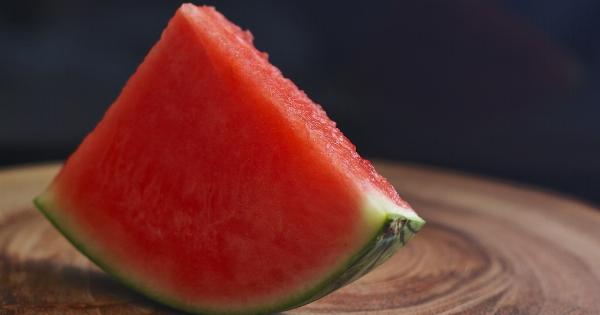As a responsible dog owner, it’s natural to wonder about the safety of feeding certain fruits to your furry friend.
Watermelon and melon are popular fruits loved by many humans, and you may be curious if they are safe and healthy options for your dog as well. Before sharing these juicy treats with your canine companion, there are a few important factors to consider.
1. The Importance of Moderation
While watermelon and melon are generally safe for dogs to consume, it’s crucial to remember that moderation is key. Like all fruits, these delicious treats should only be given to your dog in small quantities.
Introducing any new food to your dog’s diet can upset their stomach, so it’s best to start with small portions to see how well they tolerate it.
2. Potential Health Benefits
Watermelon and melon can offer some health benefits to your furry companion. These fruits contain high water content, which can help keep your dog hydrated, especially during hot summer months.
Additionally, they are packed with essential vitamins and minerals, such as vitamins A and C, which are beneficial for your dog’s overall well-being.
3. Seedless Options
When sharing watermelon or melon with your dog, it’s essential to opt for seedless varieties. Seeds can pose a choking hazard or cause an intestinal blockage if ingested.
Make sure to thoroughly remove all seeds before offering these fruits to your four-legged friend.
4. The Rind Dilemma
While the juicy flesh of watermelon and melon is safe for your dog, the rind can be a different story. The hard outer layer of the fruit can be difficult for dogs to digest and may cause gastrointestinal upset or blockages.
It’s best to remove the rind entirely before sharing these fruits with your canine companion.
5. Natural Sugars and Fiber Content
Watermelon and melon naturally contain sugars, although they are considered healthy sugars when consumed in moderation.
However, if your dog has diabetes or is on a low-sugar diet, it’s important to consult with your veterinarian before introducing these fruits into their diet. Additionally, watermelon and melon are high in fiber, which can aid in digestion but may cause loose stools if given in excessive amounts.
6. Allergies and Sensitivities
Just like humans, dogs can have allergies or sensitivities to certain foods. While watermelon and melon are not common allergens, it’s always wise to monitor your dog for any adverse reactions after introducing these fruits.
Keep an eye out for symptoms such as itching, vomiting, diarrhea, or changes in behavior. If you notice any concerning symptoms, discontinue feeding these fruits and consult your veterinarian.
7. Serving Suggestions
There are several safe and enjoyable ways to serve watermelon and melon to your dog:.
– Cut the fruit into small, bite-sized pieces to prevent choking hazards.
– Freeze small chunks of watermelon or melon for a refreshing summer treat.
– Mix small amounts of diced fruit into your dog’s regular food for added flavor and nutrition.
– Consider using watermelon or melon as a training reward, given in small quantities.
8. Avoid Additives and Seasonings
When sharing watermelon or melon with your dog, ensure that you are offering it in its purest form. Avoid adding any seasonings, spices, or sweeteners.
Certain additives like artificial sweeteners (such as xylitol) can be toxic to dogs and should never be included when feeding them fruits.
9. Can My Dog Eat the Seeds?
Typically, it is best to remove all seeds from watermelon and melon before giving them to your dog. As mentioned earlier, seeds can pose a choking hazard or lead to intestinal blockages.
If your dog accidentally consumes a few seeds, it’s unlikely to cause significant problems, but it’s still a good idea to practice seed removal to ensure their safety.
10. Consulting with Your Veterinarian
While watermelon and melon are generally safe fruits for dogs, it’s always a good idea to consult with your veterinarian before making any changes to your dog’s diet.
They know your pet’s health history and can provide specific guidance based on their individual needs and circumstances.






























